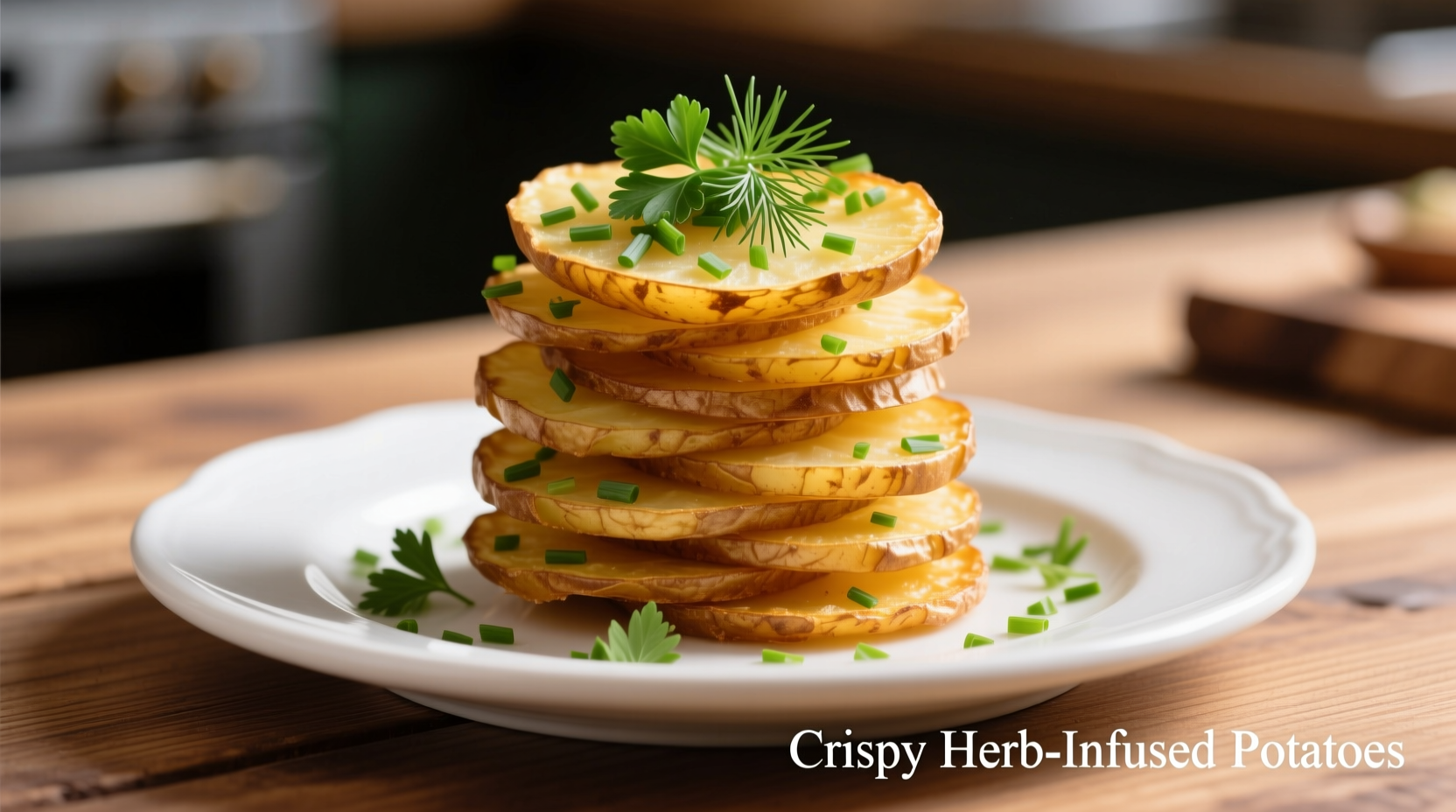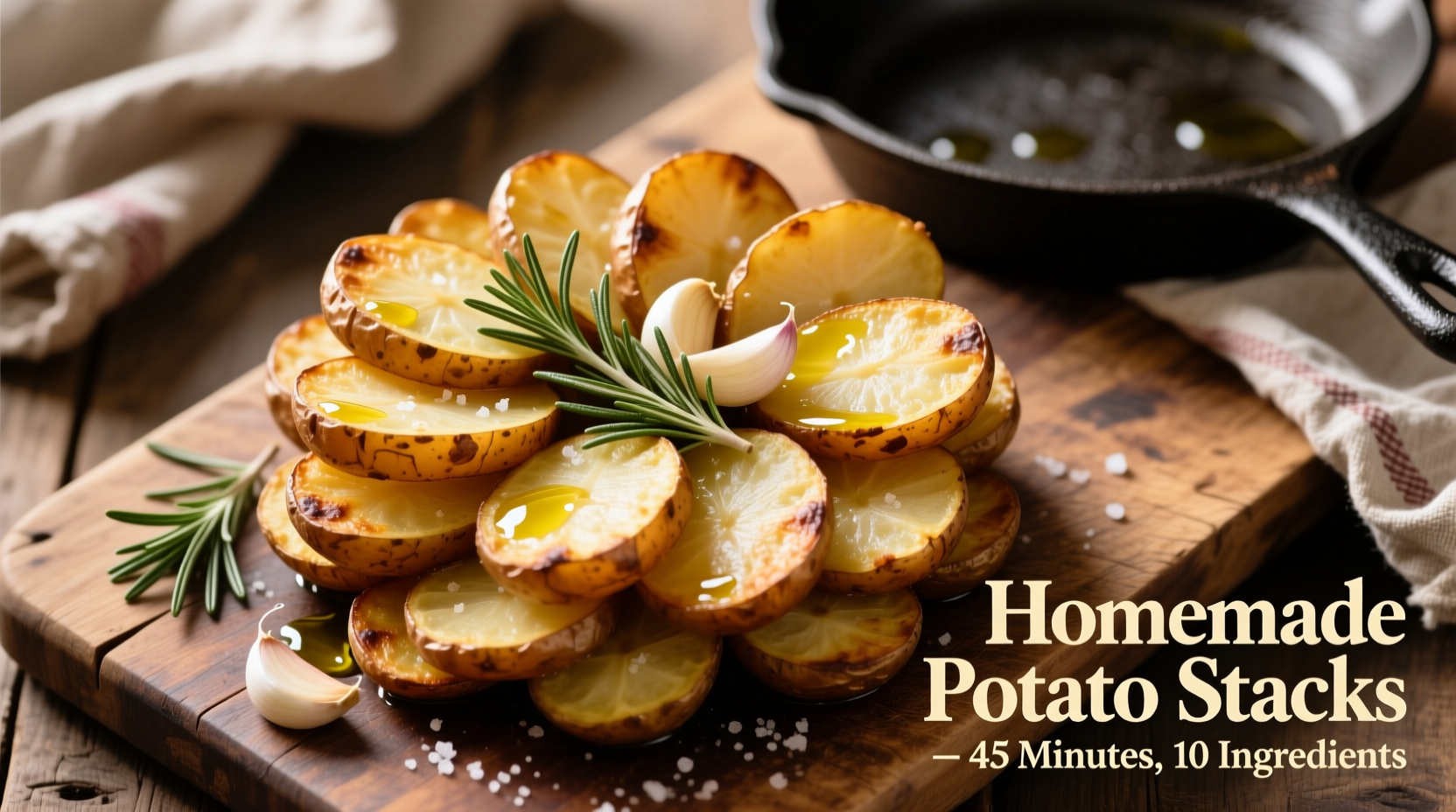Here's the direct answer: The perfect potato stacks recipe features thinly sliced russet potatoes layered with butter, garlic, and herbs, then baked at 400°F for 45-55 minutes until golden and tender. This method creates crispy edges with a fluffy interior, serving 4 people in under an hour with simple ingredients you likely have on hand.
Craving that irresistible combination of crispy exterior and tender interior found in restaurant-style potato stacks? You've landed in the right place. This meticulously tested recipe delivers professional results in your home kitchen, with clear instructions that eliminate guesswork. Whether you're preparing a special weekend brunch or elevating your weeknight dinner, these golden potato stacks will become your go-to side dish that impresses without overwhelming your schedule.
The Science Behind Perfect Potato Stacks
Understanding why certain techniques work transforms good potato stacks into exceptional ones. Food science reveals that russet potatoes' high starch content creates the ideal structure for stacking, while their moisture content evaporates during baking to produce that coveted crispiness. According to the USDA Food Safety and Inspection Service, potatoes reach safe internal temperatures at 205°F–212°F, which coincidentally delivers perfect texture without becoming mushy.
| Potato Variety | Best For Stacks? | Why |
|---|---|---|
| Russet | Yes | High starch creates ideal structure and crispiness |
| Yukon Gold | Sometimes | Medium starch works but may become too soft |
| Red Potatoes | No | Waxy texture prevents proper layering and crisping |
Essential Ingredients for Flavorful Potato Stacks
Quality ingredients make the difference between ordinary and extraordinary potato stacks. While the basic components remain simple, attention to detail elevates this humble side dish:
- 2¾ lbs russet potatoes (about 3 medium) - peeled and sliced 1/8 inch thick using a mandoline
- 4 tbsp unsalted butter, melted (substitute olive oil for dairy-free option)
- 3 garlic cloves, minced (or 1½ tsp garlic powder)
- 1¼ tsp kosher salt plus additional to taste
- ¾ tsp freshly ground black pepper
- 2 tbsp fresh herbs (rosemary, thyme, or chives work best)

Equipment Checklist
Having the right tools ensures consistent results:
- Mandoline slicer (critical for uniform thickness)
- 8-inch round cookie cutter or ring mold
- Cast iron skillet or oven-safe baking dish
- Pastry brush for butter application
Step-by-Step Preparation Guide
Preparation Phase: Setting Up for Success
Begin by preheating your oven to 400°F. Line your baking sheet with parchment paper to prevent sticking. Using a mandoline, slice potatoes to uniform 1/8-inch thickness – this precision ensures even cooking. Immediately place slices in cold water to prevent browning while you prepare other ingredients.
Assembly Technique: Building Flavorful Layers
Drain and thoroughly dry potato slices using a clean kitchen towel – moisture is the enemy of crispiness. In a small bowl, combine melted butter, garlic, salt, pepper, and half your herbs. Place your ring mold in the center of the prepared baking sheet. Begin layering: 5-6 potato slices slightly overlapping, brush generously with butter mixture, sprinkle with herbs, then repeat. Press down gently after each layer to create cohesion without crushing the slices.
Cooking Process: Achieving Perfect Texture
After building your stack (about 1¼ inches high), carefully remove the ring mold. Brush the top generously with remaining butter mixture. Bake for 45-55 minutes until golden brown and a knife inserts easily with no resistance. For extra crispiness, broil for the final 2-3 minutes watching carefully to prevent burning. Let rest 5 minutes before serving – this allows structure to set.
Troubleshooting Common Issues
Even experienced cooks encounter challenges with potato stacks. Understanding these context boundaries prevents frustration:
- Stacks falling apart: Usually caused by insufficient drying of slices or inadequate layer compression. Solution: Pat slices completely dry and press firmly after each layer.
- Soggy texture: Oven temperature too low or insufficient baking time. Solution: Verify oven calibration and extend cooking time as needed.
- Burning edges: Overcrowded baking sheet or excessive sugar content. Solution: Space stacks properly and avoid sweet potato varieties.
Variations to Suit Any Occasion
Customize your potato stacks for different meals and dietary needs:
- Cheesy version: Add 2 tbsp grated parmesan between layers
- Breakfast twist: Incorporate crumbled bacon and chives
- Vegan option: Substitute butter with olive oil and nutritional yeast
- Spicy kick: Mix 1/4 tsp cayenne pepper into butter mixture
Serving Suggestions and Pairings
These golden potato stacks complement a wide range of main courses. They pair beautifully with grilled proteins like steak or salmon, and make an impressive addition to brunch spreads alongside eggs Benedict. For a complete meal, serve with a simple arugula salad dressed with lemon vinaigrette. Leftovers (if any!) reheat well in a 375°F oven for 10-12 minutes to restore crispiness.











 浙公网安备
33010002000092号
浙公网安备
33010002000092号 浙B2-20120091-4
浙B2-20120091-4